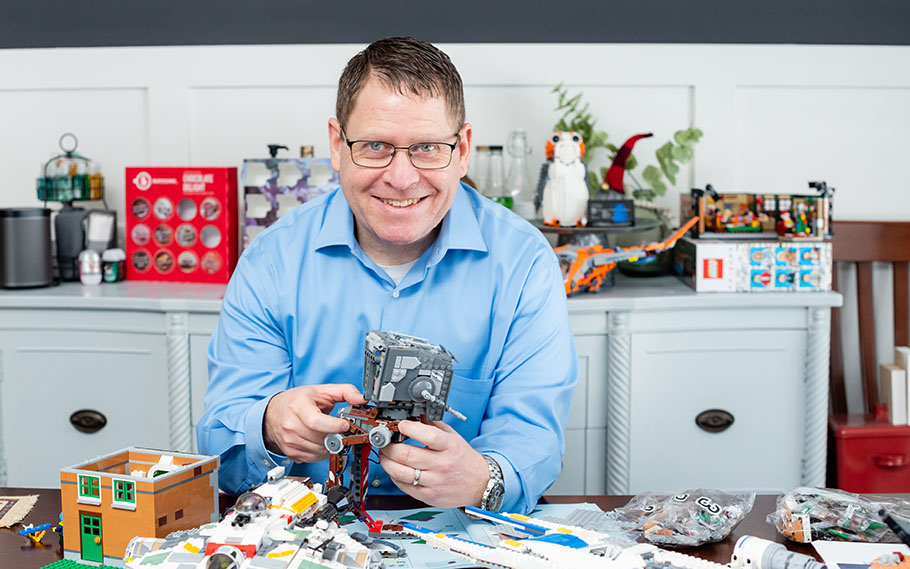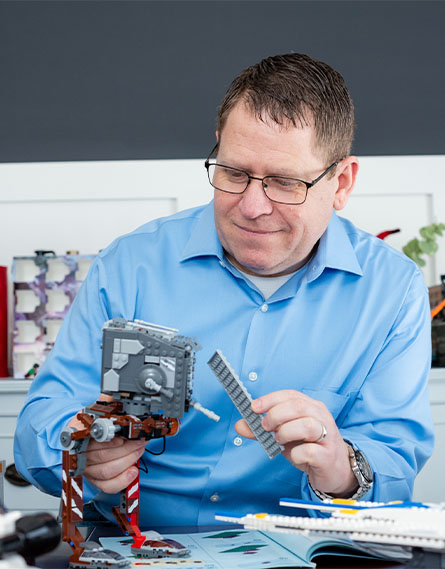“Pemphigus is always in the back of my mind.”
David’s story
“Pemphigus is always in the back of my mind. If I have something on my skin, I look twice. If I feel a strange itch or sensation on my scalp, I wonder if that’s a lesion popping up.”

David Was Diagnosed with Pemphigus Vulgaris 18 Years Ago
When he started experiencing symptoms, David was a commercial airline pilot. It took almost a year to get a diagnosis, and he wondered if he’d ever be able to fly again.
What was your life like when you started experiencing symptoms and eventually got diagnosed with pemphigus vulgaris?
I’ll never forget the dermatologist saying: ‘I know what’s wrong with you. It’s very serious. But I can’t treat it. You need to go see a specialist at a university.’ And he wrote two words on a piece of paper, words I’d never seen before: Pemphigus vulgaris.
When the Director of Dermatology comes into your room and says, ‘I’ve tried everything, I don’t know what else to do,’ that’s a low point for me. I didn’t know where to go from there. I needed full-time care. I walked like I was 90 years old with 70% of my body covered in open sores and I had a lot of nerve pain. I was on a fentanyl patch and it did nothing. I had to move back in with my parents. I didn’t know if I’d ever get back to flying as a pilot.


How have you responded to treatments and adjusted to living with PV?
I returned to work in 2007. Not long after that I met my wife. We rode motorcycles together and we were married 12 years ago. I entered into long-term remission. I had a minor flare at the end of 2019, but this time I knew what to look for, so we caught it early.
While I wouldn’t wish pemphigus vulgaris on my worst enemy, I’m actually glad I have it. It might sound strange, but it’s made me who I am today. I don’t know if I would have met my wife. I’ve made lifelong friends through other patients.
How does having PV affect your mental health?
Pemphigus is always in the back of my mind. If I have something on my skin, I look twice. If I feel a strange itch or sensation on my scalp, I wonder if that’s a lesion popping up. If I get a sore, I wonder: is it pemphigus popping up? And what does that mean for the rest of my life? With pemphigus, there are worries about income and insurance. I live with these concerns and manage the stress, because stress is a big autoimmune trigger.
“With pemphigus, there are worries about income and insurance. I live with these concerns and manage the stress, because stress is a big autoimmune trigger.”
What are your coping mechanisms?
I love to cook. I’m into barbecue and slow smoking. A brisket can take 12–18 hours. For me the process is very soothing and cathartic. And then getting to feed my friends and family is a big stress reliever.
What advice do you have for others who are newly diagnosed with PV?
First, you need to become an expert in the disease. If you understand it and the available treatments and future treatments in development, that will help you be your own advocate. Second, you have to preserve your mental health. This disease is difficult and can lead to depression. Sometimes it helps to talk to people. Finding another PV patient can help, and so can seeing a professional.
